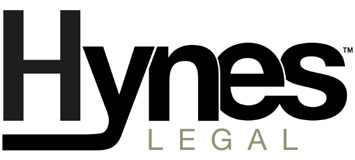NRAS and management rights – what does it mean?
Management rights and NRAS units
Many resident managers would recall the times when housing affordability was a real (and political) issue. It is not a political issue anymore, but we are now starting to live with the legacies of what that political pressure produced.
One of the results of that the Residential Tenancies and Rooming Accommodation Act was amended to require landlords to give at least two months’ notice of termination of a tenancy while tenants could terminate a tenancy on two weeks notice. This isn’t so fair in a soft rental market, but it remains the law.
Another legacy was the creation of the National Rental Affordability Scheme. If you google ‘NRAS’ you will find a plethora of information online about what it means along with multiple ads for sales of NRAS properties.
In the very simplest of terms, if:
- a new unit is NRAS approved; and
- the owner of the unit rents it to eligible tenants (based on income brackets set by the Federal government) at a discount to the current market rental of at least 20%; then
- that owner will receive generous tax rebates / offsets from both the Federal and State government at the end of every financial year. These incentives are increased annually by reference to a generous index.
The rebates will end up being well more than the loss of the rental over the course of the 12 months. The scheme is for a decade, so the relatively better returns for investors are substantial.
Anecdotally, it appears that NRAS approved units are what the investment market is currently preferring to buy ahead of non NRAS units. In a slow sales market it means developers are seeking NRAS approvals for units in their developments.
This all has implications for management rights.
The perfect management rights letting pool has no common ownership of lots (other than perhaps two or so units) or common influence over lot owners (such as an investment club). NRAS certainly changes that.
We saw our first real NRAS issues arise for a client in May 2011 in relation to an off the plan purchase. Over the last 12 months as NRAS approved units have been built, there are now many complexes that have NRAS units in them. Going forward, if you are buying off the plan (particularly in Brisbane), it is more than likely that your management rights will include an NRAS component, particularly if the units are in the $500,000 or less price bracket. We will also start to see more resales of existing management rights complexes with NRAS units in them.
It is normally not the developers themselves that obtain the NRAS approvals. They are usually obtained by an NRAS ‘provider’. These providers are a mix of not-for -profit and for-profit organisations and they all run their NRAS programs as they choose – which means differences in every model.
Our experience has been that some of them are very good to work with. Some aren’t. There are various reasons for that, one of which is that the providers simply do not understand how NRAS and management rights need to co-exist.
If we polish off the crystal ball for a minute, we think that NRAS units in years to come will remain more sought after than non-NRAS units for property investors. This is simply because of the better financial returns. If this is right, there should be less chance of NRAS units selling to owner occupiers. It follows that there should be more stability and continuity for a letting pool of NRAS units.
Offsetting that is the additional compliance (and risk) that comes with managing NRAS units. You need to make sure you understand the additional work you are needed to do (including charging for it) and the additional approvals required for it. You also need to understand the provider and ensure your business relationship with that provider and the owners carries the necessary protections.
Managed right (and that can be done) NRAS should not a problem in a management rights business.


